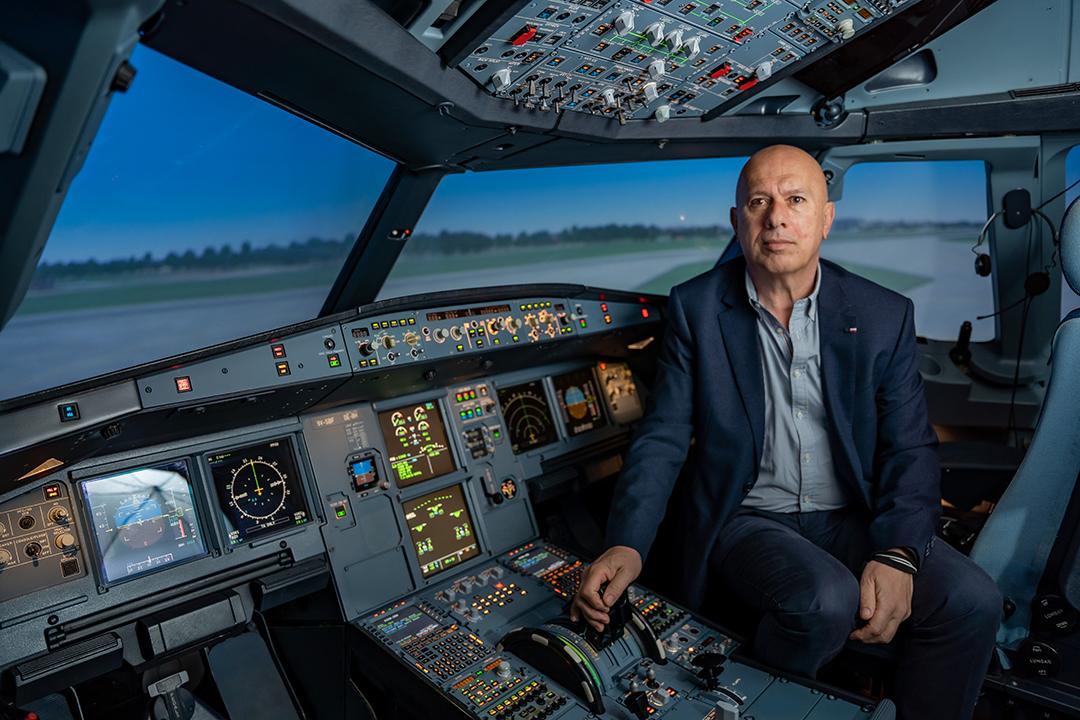
In mid-May, Hungary-based Wizz Air became the latest carrier to announce plans to open a subsidiary in Malta, targeting an October 2022 launch.
The move followed a decision by Eurowings and the Lufthansa Group to establish a new company in Malta and apply for an air operator’s certificate (AOC) there. A gradual transfer of 19 Airbus A319/320 and crew from Austria-registered Eurowings Europe to the new Maltese company, Eurowings Europe Limited, is planned for the 2022/2023 winter flight schedule.
“There are 672 aircraft registered in Malta, with a large shift from business jets to commercial airliners,” Charles Pace, director general for Civil Aviation at Transport Malta (CAD), told Routes.
The biggest player in terms of airline-registered aircraft is Ryanair Group—which consists of Ryanair, Ryanair UK, Buzz, Lauda Europe and Malta Air—which has approximately 170 aircraft with Malta’s 9H registration prefix. “Wizz Air could have around 80 aircraft on the register in the first year,” Pace added.
But what is making Malta—located close to Italy, between Europe and North Africa—so popular?
“We talk to airlines in many ways and there is always simplicity,” said Pace, who is also a Boeing 737 captain. “We stick to a simple model, not having too many strange restrictions in place like in some other countries. We want to be fair. We sit down, we analyze and offer a better plan, establishing good processes.”
Pace said that decisions to establish an AOC in a foreign country are not taken lightly by the airline management: “They all did their due diligence. We can just say that we want the business and make every effort to do the job diligently and efficiently.”
And the demand for alternative AOCs is increasing. Currently CAD is processing five airlines, including Eurowings Europe, Wizz Air, and the Challenge Air Group, which has an AOC in Belgium.
It is also processing an application for Flight, partly owned by US regional Mesa Airlines. Mesa is planning to launch its European Union-based subsidiary in a joint venture with UK aviation consultancy Gramercy Associates and to transfer several CRJ Regional Jets to Europe. The new carrier will offer capacity-purchase agreements and ACMI services.
“The Mesa process has started and Flight could start operations this summer depending when the first aircraft is registered,” Pace said.
Malta is a very small island with 316 square kilometers and about 500,000 inhabitants. Its main economy is fishing tuna and tourism, and it has a strength in financial services and shipping. However, the government is seeking to rapidly expand its aviation industry.
Beside airlines, global MRO companies like Lufthansa Technik and SRTechnic have huge hangars in Malta. Lufthansa Technik, for example, has 500 employees. There are also smaller MRO providers like Aviation Cosmetics, MCM, and Medavia among others. “A total of 7,800 people in Malta are working directly in aviation,” Pace said. His department already has 70 people.
“For us, every little investment is important, every small company is welcomed. Because we feel that you are a client, you are investor,” Pace said.
CAD also does a lot of work with leasing companies—all necessary parameters in making Malta an attractive alternate for leasing companies.
The Maltese regulator is extremely strict when it comes to withdrawing the certificates. Airlines have been suspended and even revoked if there is continuous noncompliance with EASA and EU regulations. Malta has one of the strictest regulatory authorities in Europe and is routinely audited by EASA.
“We made some enemies, and some countries don't like us, because we have managed to achieve good results,” Pace said. “But all this is done with safety as the ultimate goal,” he said, adding that CAD's strategy is to grow sustainably.
“We want to grow in a controlled manner. There is room for everyone,” Pace said. Other major players in airline AOC trading are Ireland and Austria.
And how do local companies see the aviation strategy of Malta? “Transport Malta has done a fantastic job in putting Malta on the map in this regard,” Alan Borg, CEO of Malta International Airport, told Routes.
Major players in the industry are turning to Malta for aircraft operator licensing and aircraft registration due to the reputation the island has built in the past decade.
“It is safe to say that Malta has made a name for itself in this market through the introduction of pragmatic processes that facilitate aircraft licensing and registration, as well as an array of competitive benefits,” Borg said.
He also believes that Malta International Airport stands to benefit from this development, saying, “The aviation industry has always presented numerous economic opportunities for the Maltese Islands, and all industry stakeholders have always worked hand-in-hand to ensure that this sector continues to thrive through enhanced connectivity and diversification.”
